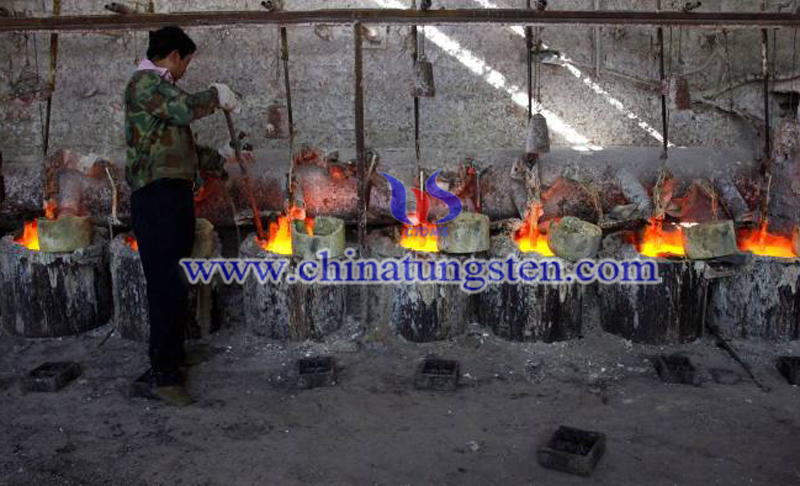Rainbow Rare Earths Looks to Open Second Mining in US amid China Supply Fears
- Details
- Category: Tungsten's News
- Published on Wednesday, 11 September 2019 08:36
The United States has been planning to counter the Chinese rare earth trump card in the Sino-US trade war. George Bennett, the new chief executive of Rainbow Rare Earths, said this month that the company is aiming for a near 20-fold production boost and hope to replace processing of China and wouldn't take a Chinese partner.
The mysterious dark horse company Rainbow Rare Earths was established in December 2017. It produces and processes rare earths in Burundi, East Africa. London-based investment company TechMet also has a £3m joint venture with Rainbow to develop a rare earths processing facility outside Africa, which is likely to be in the US.
George Bennett, told the Financial Times that the company "will not choose a Chinese-invested company as a partner" during the expansion process, and the company hopes to replace it. China carries out the process of rare earth processing to obtain more value from rare earths, but the company will not refuse to sell finished products to the Chinese market.

Bennett said: "The company plans to increase the production of the only active rare earth mine in Africa by nearly 19 times, becoming the second-largest rare earth mine." Mr Bennett said he was targeting production of 10,000 tonnes of rare earth oxides from the "elephant of a deposit" before boosting it to 20,000 tonnes.
Bennett told Financial Times that the company had a key advantage in that there were no radioactive minerals such as thorium or uranium in the deposit, making the mining waste easier to handle. But Ryan Castilloux, managing director of consultancy Adamas Intelligence, said the company had yet to prove the quality of its Burundi deposit. "It begs the question whether the juice is worth the squeeze," he said.
He said the Rainbow Rare Earths was at present exporting to another country for processing were low-value and worth just $2-$3 a kilogram, which would only provide revenues of $10m-$15m even if production accelerated.
Rare earths, 17 chemical elements that are essential to electronics and defense technologies, have come under greater scrutiny this year after China said in May it could ban their export in retaliation against trade tariffs launched by US President Donald Trump.
The New York Times published an article on July 11, pointed out China is a major exporter of rare earths. In Sino-US trade war, the "killer" of Chinese rare earth card has not been used. It dominates the supply of scarce mineral resources globally. These scarce resources include arsenic metals for semiconductors, cadmium for rechargeable batteries, and tungsten for the production of bulbs and melting industrial materials. Rare earths are indispensable materials in everyday supplies.
According to a survey by the Dutch consulting firm Adamas Intelligence, in 2017, China produces 80 percent of the world's rare earths and Chinese companies have also bought stakes in overseas rare earths mines in California, US and Greenland. In 2018, Australian-listed miner Lynas produced 19,700 tonnes of rare earth oxides from its mine in Australia. Previously, Rainbow Rare Earths was hand-harvested when it was established until March 2019, and sold 1,100 tons of rare earth ore for more than a year.
- Rare Earth Manufacturer & Supplier, Chinatungsten Online: www.chinatungsten.com
- Tungsten News & Prices of China Tungsten Industry Association: www.ctia.com.cn
- Molybdenum News & Price: news.molybdenum.com.cn
- Tel.: 86 592 5129696; Fax: 86 592 5129797; Email: sales@chinatungsten.com



 sales@chinatungsten.com
sales@chinatungsten.com